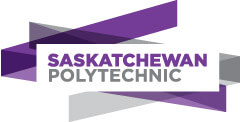About Therapeutic Recreation Diploma in Saskatchewan Polytechnic
Program Overview
Therapeutic recreation is a career that attracts organized, outgoing, active individuals who like working with people of all abilities. You need to be good at encouraging people to set goals, develop skills and try new things.
Career opportunities are diverse—be a recreation therapist, a recreation coordinator, an activity director or programmer. Work as part of a multidisciplinary health care team in clinical or community-based settings, from hospitals to rehabilitation centres.
Therapeutic Recreation is a two-year diploma program offered at Saskatchewan Polytechnic Saskatoon campus . It is also offered through distance education. You’ll learn from knowledgeable instructors how to use recreation as a means of improving health, functional ability and quality of life. The program provides a broad knowledge base, from human growth and development to sociology. Your studies will focus on:
- assessment of individual needs, functional abilities and leisure behaviours
- development of individualized treatment plans
- documenting progress
- using facilitation techniques to meet individual goals
- practicing therapeutic recreation based on professional standards
- modifying activities to meet individual abilities
- participating as a member of a health care team
Learn through Practical Experience
Apply what you’ve learned in class in real-world settings. The program includes three practicums. Each one will provide opportunities to apply assessment techniques, conduct activity analysis and selection, develop and evaluate treatment plans, get involved in individual and group program planning and more. You’ll also build important interpersonal and leadership abilities.
Pursue Professional Certification
If you’re interested in pursuing professional certification, the Canadian Therapeutic Recreation Association endorses the National Council for Therapeutic Recreation Certification’s Certified Therapeutic Recreation Specialist (CTRS) as the certification for Canada.
Career and Salary Information
Your Career
When you graduate, you’ll be able to work in both clinical and community-based settings. You could work in a hospital as part of a multidisciplinary health care team, in a long-term care facility, adult day program, rehabilitation centre, addiction program or mental health program. Explore career opportunities with health regions, provincial or federal health agencies,
Academic qualification equivalents:
- Grade 12 with a minimum 60% in each of the following subjects: English Language Arts A30, English Language Arts B30, Chemistry 30 and Pre-Calculus 30
English language requirements (one of the below):
- IELTS : Overall minimum score of Band 6.5 with a minimum score of 5.0 in each component.
- TOEFL : An overall minimum score of 81 on the Internet-based Test of English
- PTE : A minimum score of 63 with minimum component scores of 50.
Saskatchewan Polytechnic Highlights
| Type |
Public |
| Campus Setting |
Urban |
| Application mode |
Online and Paper mode available |
| Graduation rate |
62% |
| Acceptance rate |
96% |
| Number of Students |
16,008 |
| Overall cost of living |
14,762 CAD |
| Academic calendar |
Semester based |
| % of International students |
6% |
| Number of campuses |
4 |
| Medium of instructions |
English |
| Undergraduate Tuition fee |
14,044 CAD |
| Postgraduate Tuition fee |
16,426 CAD |
| Cost of living |
694 -1147 CAD per month |
Saskatchewan Polytechnic First-Year Tuition Fees And Living Expenses For International Students
Over the course of one academic year, the following graph displays tuition and living expense estimates in Canadian currency for one full-time international undergraduate student. Please bear in mind that these are only estimates; actual pricing will vary depending on your needs and preferences. Other factors to consider include currency changes, visa and study authorization fees, and vacations back home.
- For international students, the overall fees will range from:-
| Particulars |
Amount |
| Administrative fees |
50.00 to 150.00 CAD |
| Application fees |
150 CAD |
| Student association fee |
95.00 to 445.00 CAD |
| Non-refundable fee at the start) |
1,000 CAD |
| Tuition fee range |
6,195 to 18,089 CAD |
| Laboratory fee |
100.00 to 409.00 CAD with no fees for
some courses which do not have a lab service. |
| Books and Supplies |
200 to 3,725 CAD |
| Technology fee |
50 to 146 CAD |
- For a student of Saskatchewan Polytechnic the required financials (Cost of Attendance) can be:-
| Description of Financials |
Amount in CAD |
| Average cost of tuition |
11245.77 CAD |
| Cost of living |
10799.39 CAD |
| Application fee |
150 CAD |
| Estimated total (per year) |
22,195.16 CAD |
